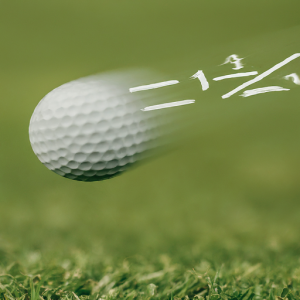Category:Mathematics: Difference between revisions
No edit summary |
No edit summary Tag: 2017 source edit |
||
| Line 1: | Line 1: | ||
{{DISPLAYTITLE:Mathematics and Golf}} | {{DISPLAYTITLE:Mathematics and Physics in Golf}} | ||
[[File:Math and golf.png|thumb|Mathematics and Golf]] | [[File:Math and golf.png|thumb|Mathematics and Golf]] | ||
Golf, a game often celebrated for its precision and strategy, is deeply interwoven with mathematics, influencing everything from the design of the course to the flight of the ball. Course architects use geometric principles to create challenging layouts that offer strategic depth through the placement of greens, hazards, and fairways, each designed with angles and distances in mind. The physics of golf ball flight, governed by principles like Bernoulli's principle for aerodynamics and the equations of motion for trajectory, exemplify how physical laws, essentially mathematical models, dictate the game's dynamics. Players leverage statistics to inform their strategies, analyzing performance metrics to optimize their game, while also employing probability in real-time shot selection. Technology, such as launch monitors and GPS devices, integrates advanced trigonometry and algorithms to refine player feedback and accuracy. This fusion of mathematics with golf not only enhances the sport's competitive edge but also highlights the practical application of numerical concepts on the green, making every swing a lesson in applied math. | Golf, a game often celebrated for its precision and strategy, is deeply interwoven with mathematics, influencing everything from the design of the course to the flight of the ball. Course architects use geometric principles to create challenging layouts that offer strategic depth through the placement of greens, hazards, and fairways, each designed with angles and distances in mind. The physics of golf ball flight, governed by principles like Bernoulli's principle for aerodynamics and the equations of motion for trajectory, exemplify how physical laws, essentially mathematical models, dictate the game's dynamics. Players leverage statistics to inform their strategies, analyzing performance metrics to optimize their game, while also employing probability in real-time shot selection. Technology, such as launch monitors and GPS devices, integrates advanced trigonometry and algorithms to refine player feedback and accuracy. This fusion of mathematics with golf not only enhances the sport's competitive edge but also highlights the practical application of numerical concepts on the green, making every swing a lesson in applied math. | ||
Latest revision as of 13:51, 6 October 2024

Golf, a game often celebrated for its precision and strategy, is deeply interwoven with mathematics, influencing everything from the design of the course to the flight of the ball. Course architects use geometric principles to create challenging layouts that offer strategic depth through the placement of greens, hazards, and fairways, each designed with angles and distances in mind. The physics of golf ball flight, governed by principles like Bernoulli's principle for aerodynamics and the equations of motion for trajectory, exemplify how physical laws, essentially mathematical models, dictate the game's dynamics. Players leverage statistics to inform their strategies, analyzing performance metrics to optimize their game, while also employing probability in real-time shot selection. Technology, such as launch monitors and GPS devices, integrates advanced trigonometry and algorithms to refine player feedback and accuracy. This fusion of mathematics with golf not only enhances the sport's competitive edge but also highlights the practical application of numerical concepts on the green, making every swing a lesson in applied math.
Pages in category "Mathematics"
The following 6 pages are in this category, out of 6 total.
